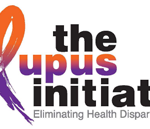The Lupus Initiative (TLI) of the American College of Rheumatology (ACR) continues its work to reduce the health disparities for people with lupus through multiple, national-level, grant-funded projects, targeting primary care physicians with lupus education to increase appropriate rheumatology referrals and—when necessary, appropriate and effective—distance-managed care. Since 2009, the ACR has received funding through the Department of Health and Human Services’ Office of Minority Health to address the health disparities among patients with lupus. Lupus affects women of color two to three times more than any other demographic. And it is often more progressed and severe in this population at diagnosis.
This year, the ACR is focusing on two groups hard hit by lupus through TLI: African Americans in Southwest Georgia and American Indians/Alaska Natives in the Pacific Northwest. Alongside robust community-level awareness campaigns in these areas, TLI is developing a virtual lupus education model for physicians and allied health professionals. Recruitment has begun for two 15-person cohorts of health professionals who will meet virtually every two to three weeks via an online classroom platform.
The series begins in February 2016 and will combine synchronous and asynchronous learning modules. The goal is to develop capabilities of primary care providers to treat a person with lupus independently or co-manage with a geographically distant rheumatologist until an appropriate referral can be made.
Topics for these cohorts have been chosen and range from the basics of lupus (signs and symptoms) to laboratory testing, as well as lupus medications, lupus flares, lupus nephritis, pregnancy and lupus, pediatric considerations in lupus, health maintenance and preventive care. ACR member Karen Law, MD, designed the curriculum, and ACR members Sam Lim, MD, MPH, Emory University, Atlanta, and Elizabeth Ferucci, MD, Alaska Native Tribal Health Consortium, Anchorage, are leading the series.
The ACR also received a five-year, multi-million dollar grant from the Centers for Disease Control and Prevention (CDC). Through this grant, TLI will develop a national program to build sustainable lupus awareness, knowledge, skills and partnerships. This program will take the form of a national grassroots awareness campaign that focuses on communities whose populations are at higher risk for lupus, as well as a national partnership network dedicated to increasing lupus awareness and education. Work on the awareness campaign has begun, starting with immediate dissemination of existing TLI materials and the development of key science-based and clinically accurate messages.
The backbone of the national network of partnerships is the ACR Affiliate Society Council. Twenty-seven societies signed letters of support for TLI and will have an integral role in the dissemination of national campaign materials. The network also includes Emory University, Alaska Native Tribal Health Consortium, Lupus Foundation of America, Northwestern University, Lupus Research Institute, National Area Health Education Center Organization, Childhood Arthritis and Rheumatology Research Alliance, Arthritis Foundation, National Association of Chronic Disease Directors and all five CDC-funded lupus registries. The Advisory Committee for the project, including ACR member rheumatologists, will meet in January 2016 for a kick-off meeting to discuss ideas, goals and strategies.

